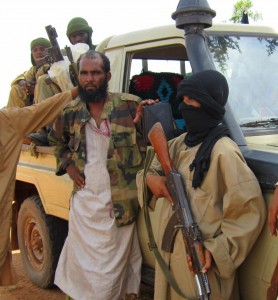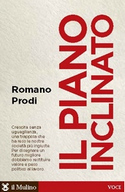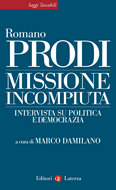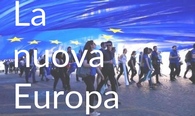Prodi: a subtle negotiator, a consensus builder, wise choice in a strategic and noble cause
 Prodi the wise choice in a strategic and noble cause
Prodi the wise choice in a strategic and noble cause
China also has role to play in unfolding crisis in Mali
By David Gosset in China Daily on november 09, 2012.
Ban Ki-moon, the secretary-general of the United Nations, has appointed the former Italian prime minister Romano Prodi as his special envoy to the Sahel region, a large zone between the Sahara desert and the Sudanese savanna that covers parts of Senegal, Mauritania, Mali, Algeria, Niger, Chad, Sudan, South Sudan and Eritrea.
The UN chief has opted for a subtle negotiator, a consensus builder who led the European Union Commission from 1999 to 2004, a globally respected man with unique expertise on Africa and a bold vision of integration for what can be the continent of the future.
Perfectly at ease in Beijing, Washington, Moscow, Cairo, Pretoria or Addis Ababa, Prodi will need a cohesive international community to stop the destabilization of the Sahelian space. However, in the aftermath of the Libyan conflict, as the Syrian tragedy continues, and facing the uncertainties of the Iranian nuclear program, Sahel could sadly become another divisive factor among the world powers, too often paralyzed by mutual suspicion and mistrust.
When Kofi Annan, the UN-Arab League joint special envoy to Syria, announced that he would leave his post in August, he also revealed the level of disunity of the UN Security Council on some of the world’s most pressing problems.
Mali, at war with itself, will be the focus of Prodi’s complex mission. A country of 1.2 million square kilometers with a population of about 15 million and per capita GDP of less than $700, it is one of the world’s poorest countries.
Since no reasonable leader can accept the making of a “sub-Saharan Afghanistan”, determined action will have to be taken to stop Azawad, a state that declared secession from Mali, being transformed into a safe haven for al-Qaida and becoming a direct threat to Algeria’s stability and Europe’s security.
Al-Qaida in the Islamic Maghreb or the Islamist group Ansar Dine have taken position in Azawad and, despite different backgrounds and objectives, they not only menace Mali, but also Mauritania, Niger, Chad and Libya.
Mali was once a part of French West Africa, when it was known as French Sudan, and more than 80,000 Malians live in France. President Francois Hollande told the UN General Assembly last month that France considers the Malian crisis one of its top external priorities, but French diplomacy can only support decisions that would have been formulated first by African leaders.
In this context, the Economic Community of West African States, chaired by the president of Cote d’Ivoire, Alassane Ouattara, is preparing an operation to help Malian troops reconquer the north, and Mali’s interim leader, Dioncounda Traore, has asked the Security Council to authorize the use of force under the UN Charter.
At least four conditions are necessary for this plan to succeed: first, it will have to be under the leadership of the Economic Community of West African States; second, it needs to be backed by the African Union and its new leader, Nkosazana Dlamini-Zuma, but also by the Organization of Islamic Cooperation; third, it needs to deal with the question over the Tuareg people in an inclusive manner; and fourth, the plan has to be fully and actively endorsed by the five permanent members of the Security Council.
However, in the long run, immediate African action in the north of Mali will not guarantee the stabilization of an extremely fragile region, and the world powers have to create the conditions for this part of the world to find the way of economic and social development. In Sahel, radical ideologies and obscurantism flourished on poverty and despair.
The UN Food and Agriculture Organization says the Sahel food and nutrition security crisis has not been funded adequately. Moreover, Niger, Mali and, to a lesser extent, Chad are threatened by possible locust swarms.
In close partnership with the African Union and the Economic Community of West African States, the European Union, the US and China could co-design a series of mechanisms to change Sahel’s path and, by doing so, demonstrate that they are able to look at Africa not as a field for new forms of rivalries but as a land for synergies.
Before the Forum on China-Africa Cooperation in Beijing in July, China announced plans to build a center for agricultural research in the region of Koulikoro, 40 kilometers from the Malian capital, Bamako. This is a highly constructive initiative, but the development in the Sahel region of Sino-Western cooperation projects, for example, in water management or in education, would carry an even more significant and promising message.
It is precisely because the Secretary-General of the UN made the right choice that a failure by Romano Prodi to unify the community of nations on such a strategic and noble cause would signal a profoundly worrisome trend: the incapacity, in a period of redistribution of global power, to generate peace and hope where they are most needed.
The author is director of the Academia Sinica Europaea at China Europe International Business School, Shanghai, Beijing and Accra, and founder of the Euro-China Forum. The views do not necessarily reflect those of China Daily.






















